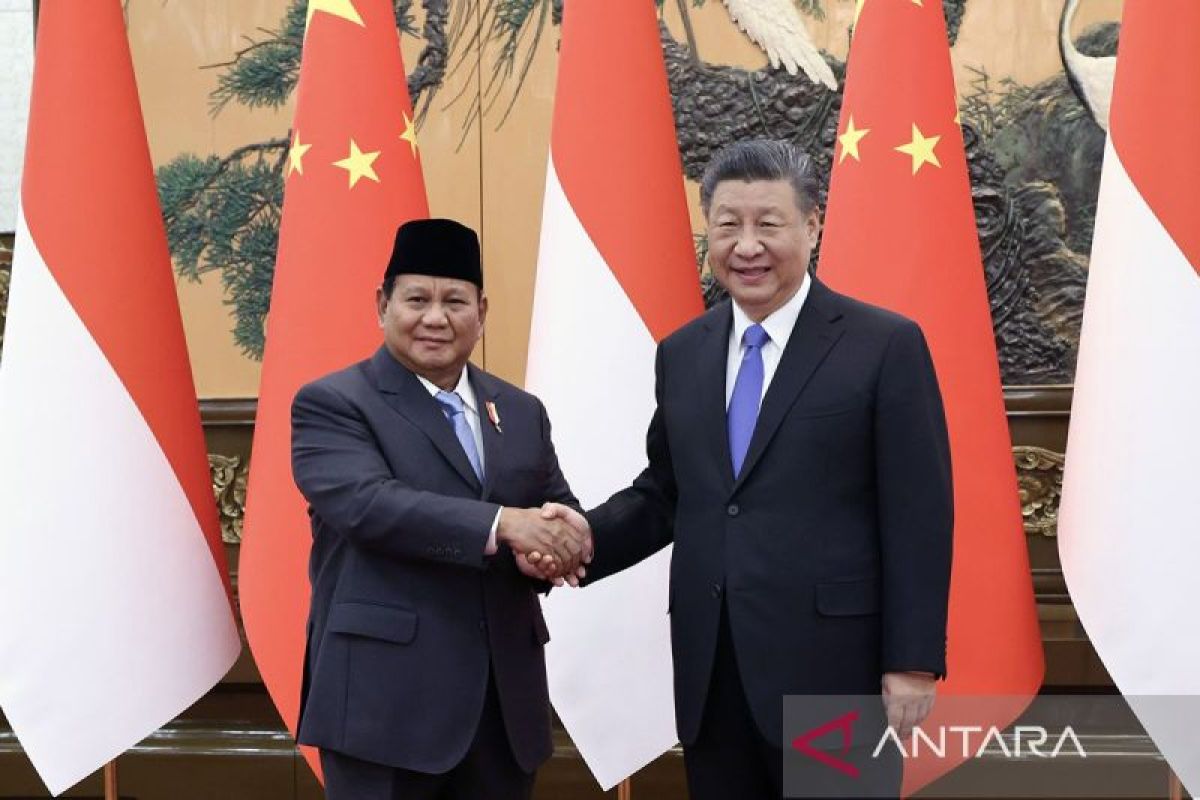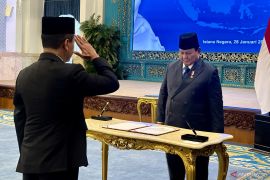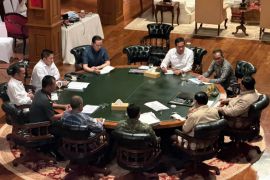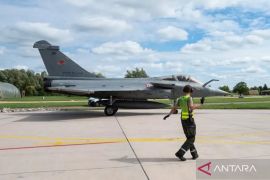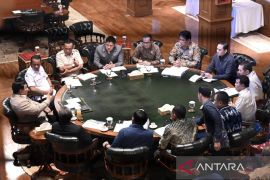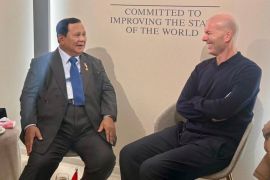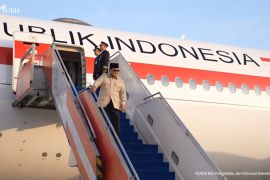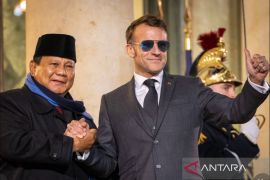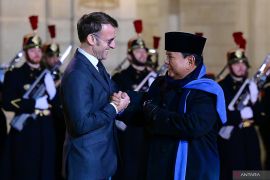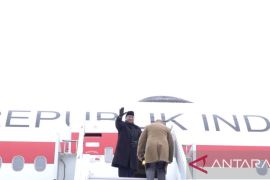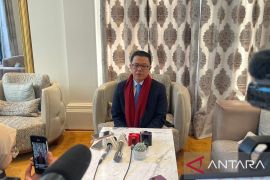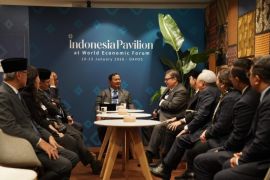Not long after the declaration, Prabowo revealed his plan on paying a visit to several Middle Eastern leaders. The president-elect had earlier embarked on working visits to China, Japan, and Malaysia following the result of the election vote recapitulation announced by the KPU on March 20.
Prabowo’s past and planned visits point to his ambition to carry on harmonious diplomatic relations fostered between Indonesia and its partners under the administration of President Joko Widodo and Vice President Ma’ruf Amin.
An international relations professor at University of Indonesia, Fredy Buhama Lumbang Tobing, assessed that the visits serve as Prabowo’s instruments for introducing himself as the next leader of Indonesia and opening new pages of diplomatic talks.
He observed that the visits also reflect Prabowo’s commitment to maintaining the sound level of relations forged with friendly countries and assuring the Indonesian public that power transition will not disrupt Indonesia’s diplomacy.
The professor hoped that the visits would result in leaders of friendly countries paying return visits to Indonesia.
It is very likely that Prabowo will include Jordan among the countries he is planning to visit, as Jordanian King Abdullah II has congratulated him on his electoral landslide victory in the quick count of the 2024 presidential election.
Prabowo, on March 12, posted on his Instagram account @prabowo to which the Jordanian King was prompt in extending his congratulations. In that post, King Abdullah II said that he had known Prabowo for a long time.
The diplomatic maneuvers taken and planned prior to the inauguration of the elected president and vice president, which will take place in October this year, can be seen as strategic steps to continue the implementation of Indonesia’s free and active foreign policy that prompts the country to maintain harmonious relations equally with different countries.
In any case, it is important for the next Indonesian leaders to ensure that Indonesia’s national interests remain as the end goal of diplomatic measures for the sake of national development.
For that reason, the succeeding administration needs to apply a reasonable priority scale, so that Indonesia’s well-maintained diplomatic relations can help it solve domestic problems.
Prabowo’s visits to China, Japan, and Malaysia signal his intent to lead Indonesia to first prioritize its relations with Asian countries. It is likely that Prabowo and Gibran would seek to kick off their diplomatic safari in Europe and America only after their inauguration later in October.
Related news: Smooth transition from Jokowi to Prabowo: expert
Related news: Widodo introduces Prabowo to Singapore leaders
Asian visits
Arfin Sudirman, an international relations expert at University of Padjadjaran, regarded Prabowo’s visit to China as an effort to confirm his commitment to sustaining the sound relations maintained between Indonesia and China under the incumbent's administration.
It is worth noting that China has been a traditional partner of Indonesia and is standing among the countries with the highest rate of economic growth. Hence, it is safe to assume that Prabowo-Gibran will strive to step up the partnership since China is “too big to be ignored.”
The expert predicted that under Prabowo-Gibran’s administration, Indonesia will continue to play along with China’s Belt and Road Initiative that has been highly beneficial to Indonesia’s infrastructure development.
In its economic cooperation, China does not demand its partners to abide by predetermined requirements, unlike the United States that tends to demand the adoption of its values of democracy and human rights.
Prabowo and Gibran, however, should not overlook several issues that need to be addressed by the Indonesian and Chinese governments, such as the dispute in the South China Sea.
It is also necessary for the next administration to take into account China’s political intervention in Myanmar, the surge of Chinese workers in Indonesian mining projects, and the alleged discrimination experienced by China’s Uighur communities.
Prabowo-Gibran’s administration is also believed to have the capacity to bridge the gap arising between Japan and China following the former’s plan to host an office of the North Atlantic Treaty Organization (NATO).
Indonesia is expected to play the role of a peace broker without neglecting the goal of maintaining the well-fostered economic relations with Japan.
Regarding relations with the neighboring country of Malaysia, Prabowo is expected to lead Indonesia to preserve the fruitful economic ties.
Prabowo, however, needs to maintain bilateral relations with Malaysia without pushing aside issues concerning protection for Indonesian migrant workers residing in the country.
Earlier, Prabowo embarked on a working visit to China from March 31 to April 2 this year, during which he had the opportunity to meet with his Chinese counterpart Dong Jun, Chinese Prime Minister Li Qiang, and Chinese President Xi Jinping.
In the meetings, the Indonesian defense minister touched upon commitment to peace and regional stability and explored viable ways to step up cooperation in defense and economy.
He then proceeded with his Asian tour in Japan on April 2-3 to meet with Japanese Prime Minister Fumio Kishida and Defense Minister Minoru Kihara. In Japan, Prabowo spoke about the potential for defense collaboration and the need to keep the Indo-Pacific a free and open region.
Furthermore, on April 3-4, the Indonesian president-elect visited Malaysia to discuss measures for intensifying relations between Indonesia and Malaysia and ASEAN, strengthening both countries’ defense, and maintaining stability of Southeast Asia with Malaysian Prime Minister Anwar Ibrahim and Defense Minister Mohamed Khaled Nordin.
All the warm welcome Prabowo received during his visits, even before his presidential inauguration, can be seen as a strong indication that Indonesia will succeed in continuing all bilateral cooperation schemes after President Widodo concluded his tenure.
Related news: Indonesia's Prabowo, China's Dong Jun discusse defense cooperation
Related news: No joint statement with US on China's South China Sea claims: Subianto
Editor: Yuni Arisandy Sinaga
Copyright © ANTARA 2024
